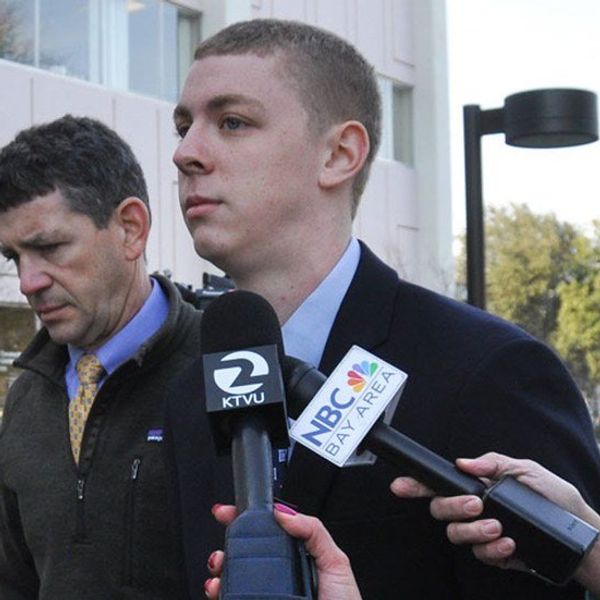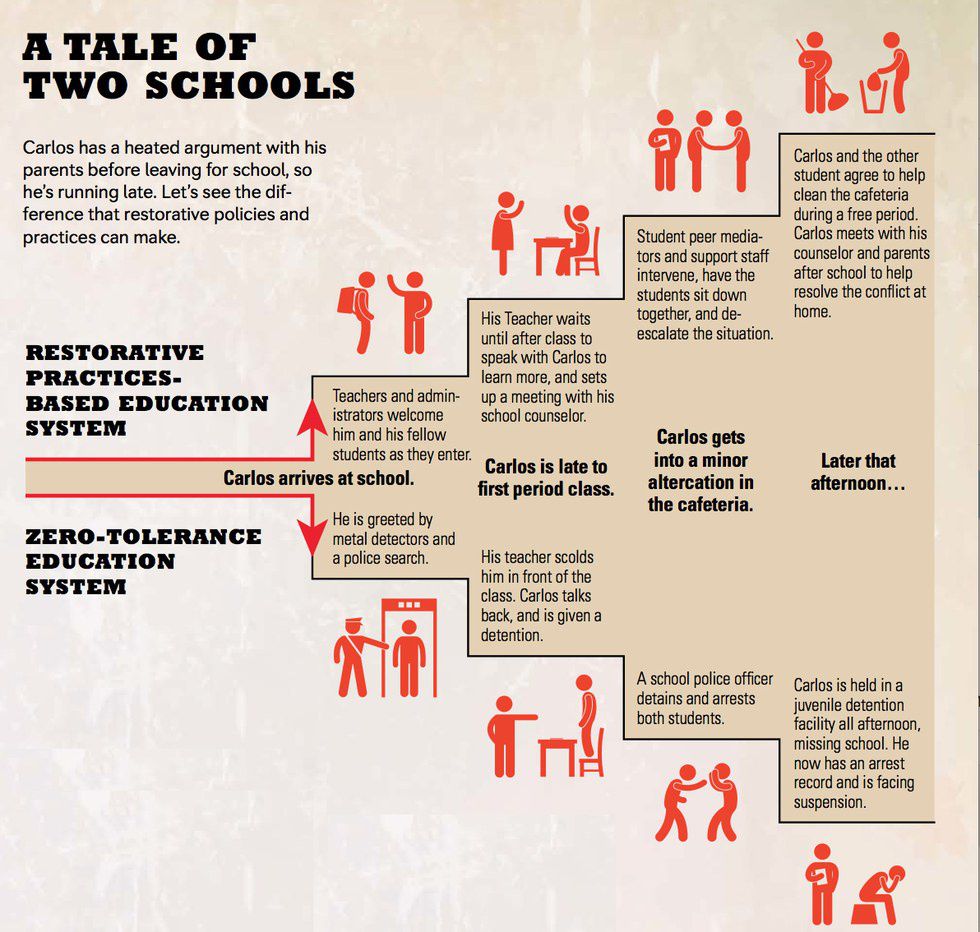Restorative Justice is an alternative to the criminal justice system and focuses on restoring the community and preventing re-offenses from occurring. Restorative Justice is a practice that is used in family court systems, youth courts, and colleges and universities. Some have the wrong idea about Restorative Justice, while others think that it is a great way for reform and change to occur. Personally, I believe in the principles and practices of Restorative Justice because I have seen what it has done in my community. During high school, I became involved in the East New York Youth Court. There I was able to serve as the prosecutor and judge on cases that involved youth who had committed misdemeanors. The impact was great on my community and on the youth because the sentences were not regular sentences that criminal courts would give to youth offenders. Instead, sentences included community service, educational programs, counseling, mentoring programs, and written letters of apologies. Using these methods allowed the youth to change and spread change in the community.
Because I know the impact that Restorative Justice has on communities, I am glad that colleges and universities are adapting the principles of Restorative Justice. Here at Spelman, we use Restorative Justice for students who violate the code of conduct, and I believe that using the alternative methods instead of suspending and expelling helps to improve our community. Recently, Skidmore College has implemented the Restorative Justice principles and has launched a research project surrounding this alternative method. In her article, Emily Riccio states, “The Skidmore College Project on Restorative Justice will conduct research, training and offer technical assistance for related initiatives in communities, schools and the criminal justice system.”
So why is Restorative Justice on the rise? The answer is, because it serves as an alternative method that focuses on accountability and restoring the community. It isn’t lenient on consequences; the consequences are just given out differently. In her Huffington post article, Molly Rowan Leach states, “Restorative Justice is not about excusing crime or letting people off the hook. It's not about forcing forgiveness or even about forgiveness per se. It's not about removing important safety considerations from our communities.” Many people don’t agree with Restorative Justice practices because they feel the offenders will not learn about their offenses. The truth is, the use of Restorative Justice isn’t only for offenders to learn about their offenses and the effects on the community. In public school systems, Restorative Justice is about eliminating the school-to-prison pipeline. Most offenders that came through the East New York Youth Court were under the age of 18, and if their case was tried in family court, they may have not walked out of the court with just community service or a slap on the wrist. Here is an example of how Restorative Justice is a positive alternative:
For college communities Restorative Justice serves as a learning process and holds offenders accountable for their actions. Leach also touches on some valid points of what Restorative Justice really is about. She highlights these four points:
Restorative Justice shows high diversionary rates from incarceration, saving states tens of thousands of dollars, if not more, per case.
Restorative Justice views crime as a violation of people and relationships.
Restorative Justice understands that violations create obligations.
Restorative Justice involves, as much as possible and where there is will, victims, offenders, community members, as well as representatives from the operating Law Enforcement and/or Corrections systems.
Restorative Justice may not be a perfect way but it is a way for change. Its principles and practices help to change communities and to reform systems that focus more on statistics and rates than rebuilding communities and eliminating re-offenses from occurring. As a future prosecutor, if I have the opportunity to work with youth offenders, I will make it my objective to teach them about Restorative Justice principles and practices. I hope that Restorative Justice continues to be impactful and is implemented around the world because positive change and reformation is what our schools and campuses need.






















